Given the vastness of the African continent, its music is diverse, with regions and nations having many distinct musical traditions. African music includes the genres amapiano, Jùjú, Fuji, Afrobeat, Highlife, Makossa, Kizomba, and others. African music also uses a large variety of instruments across the continent. The music and dance of the African diaspora, formed to varying degrees on African musical traditions, include American music like Dixieland jazz, blues, jazz, and many Caribbean genres, such as calypso and soca. Latin American music genres such as cumbia, salsa music, son cubano, rumba, conga, bomba, samba and zouk were founded on the music of enslaved Africans, and have in turn influenced African popular music.

Zenzile Miriam Makeba, nicknamed Mama Africa, was a South African singer, songwriter, actress, and civil rights activist. Associated with musical genres including Afropop, jazz, and world music, she was an advocate against apartheid and white-minority government in South Africa.
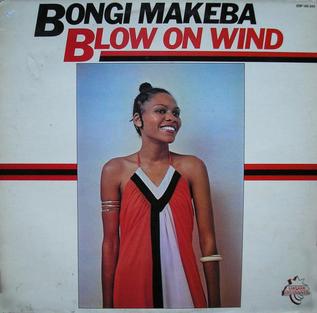
Bongi Makeba was a South African singer-songwriter. She was the only child of singer Miriam Makeba with her first husband, James Kubay.
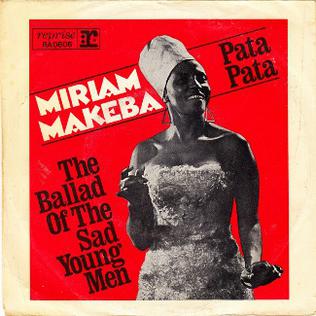
"Pata Pata" is an Afro-pop dance song popularized internationally by South African singer Miriam Makeba. "Pata Pata" is credited to Makeba and Jerry Ragovoy. Her most popular recording of "Pata Pata" was recorded and released in the United States in 1967. The song is considered by many to be Makeba's signature hit and it has since been recorded by many artists.

Laura Kabasomi Kakoma, known by her stage name Somi, is a Grammy-nominated American-born singer, songwriter, playwright, and actor of Rwandan and Ugandan descent. Somi is the first African woman to be nominated for a Grammy Award in a Jazz category.

Belafonte Returns to Carnegie Hall is a live double album by Harry Belafonte. It is the second of two Belafonte Carnegie Hall albums, and was recorded May 2, 1960. It peaked at #3 on the Billboard Pop albums charts.
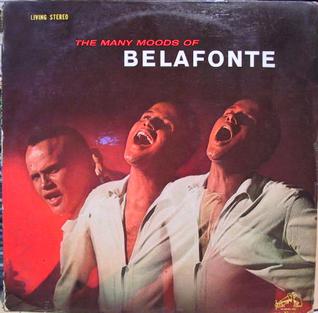
The Many Moods of Belafonte is an album by Harry Belafonte, released by RCA Victor (LSP-2574) in 1962. The album features performances by South African trumpeter Hugh Masekela and vocalist Miriam Makeba.

Welela is an album by the South African musician Miriam Makeba, released in 1989. It was produced primarily by Sipho Mabuse.

An Evening with Belafonte/Makeba is a Grammy Award-winning 1965 album by Harry Belafonte and Miriam Makeba, released by RCA Victor. It was the second outcome of the long lasting collaboration between Belafonte and Makeba, the first being the appearance of Makeba in the song "One More Dance" on Belafonte's 1960 album, Belafonte Returns to Carnegie Hall.
Makeba Riddick-Woods is an American singer-songwriter who has been active since 2005. She is originally from West Baltimore, Maryland, US. Currently she is managed by Jay-Z's record label and production house, Roc Nation. Their official website describes her as one of the industry's top pop music songwriters and vocal producers.

Eyes on Tomorrow is an album by South African singer Miriam Makeba, released in 1991. It was recorded in South Africa. Dizzy Gillespie guested on the album.
Elisa Domingas Jamisse mostly known by her stage name 'Mingas' is a Mozambican singer. Born in the capital city, Maputo in Mozambique Mingas started to sing at a very early age. Her music is a mixture of Afro sounds that gives prominence to the rhythms of the Chope people of southern Mozambique, and she is one of the most famous singers of Marrabenta. Her career is marked with big hits and collaborations with major African singers like Miriam Makeba, Hugh Masekela, Angélique Kidjo, Baba Maal, Yvonne Chaka Chaka, Jimmy Dludlu, Gilberto Gil, among others.

Gainsbourg Percussions is the sixth studio album by French musician Serge Gainsbourg, released in 1964. Gainsbourg reinvents his style with Latin, African, and Cuban influences. It would be his last album before 1968.
"Soweto Blues" is a protest song written by Hugh Masekela and performed by Miriam Makeba. The song is about the Soweto uprising that occurred in 1976, following the decision by the apartheid government of South Africa to make Afrikaans a medium of instruction at school. The uprising was forcefully put down by the police, leading to the death of between 176 and 700 people. The song was released in 1977 as part of Masekela's album You Told Your Mama Not to Worry. The song became a staple at Makeba's live concerts, and is considered a notable example of music in the movement against apartheid.
This is a discography of South African musician Miriam Makeba (1953-2008).

Pata Pata is a 1967 album by Miriam Makeba. The album charted at number 74 in the US albums chart. Most of the recordings were new, though Sivuca's "Maria Fulo" was included again, from the previous album All About Miriam.
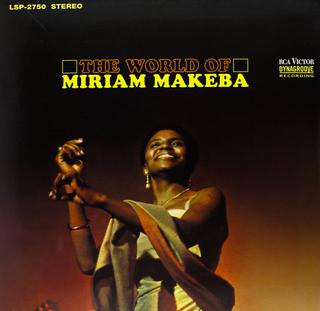
The World of Miriam Makeba is the third studio album by Miriam Makeba released by RCA Victor. It charted at #86 on the US album chart. Hugh Masekela was credited as the conductor.
The Voice of Africa is the 1964 fourth album of Miriam Makeba issued by RCA Victor. It charted at #122 on the US album chart.
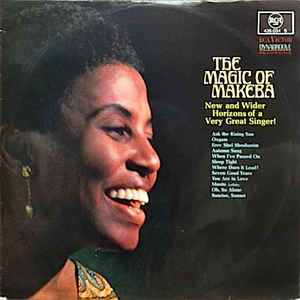
The Magic of Makeba is the seventh album by Miriam Makeba released in 1965 by RCA Victor. The album saw Makeba branching out into new material arranged by conductor Sid Bass, but it gained mixed reception and was her final album for RCA Victor.
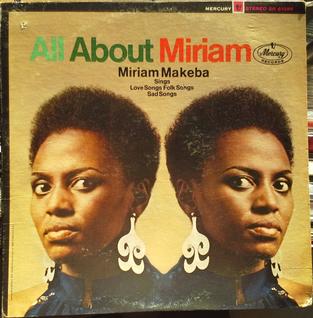
All About Miriam is the 1966 ninth studio album of Miriam Makeba Arrangements for the album were by Luchi DeJesus and Sivuca. Sivuca also played guitar. Harold Dodson played bass, and drummer was Leopoldo Flemming.














